Physical Address
304 North Cardinal St.
Dorchester Center, MA 02124
Physical Address
304 North Cardinal St.
Dorchester Center, MA 02124
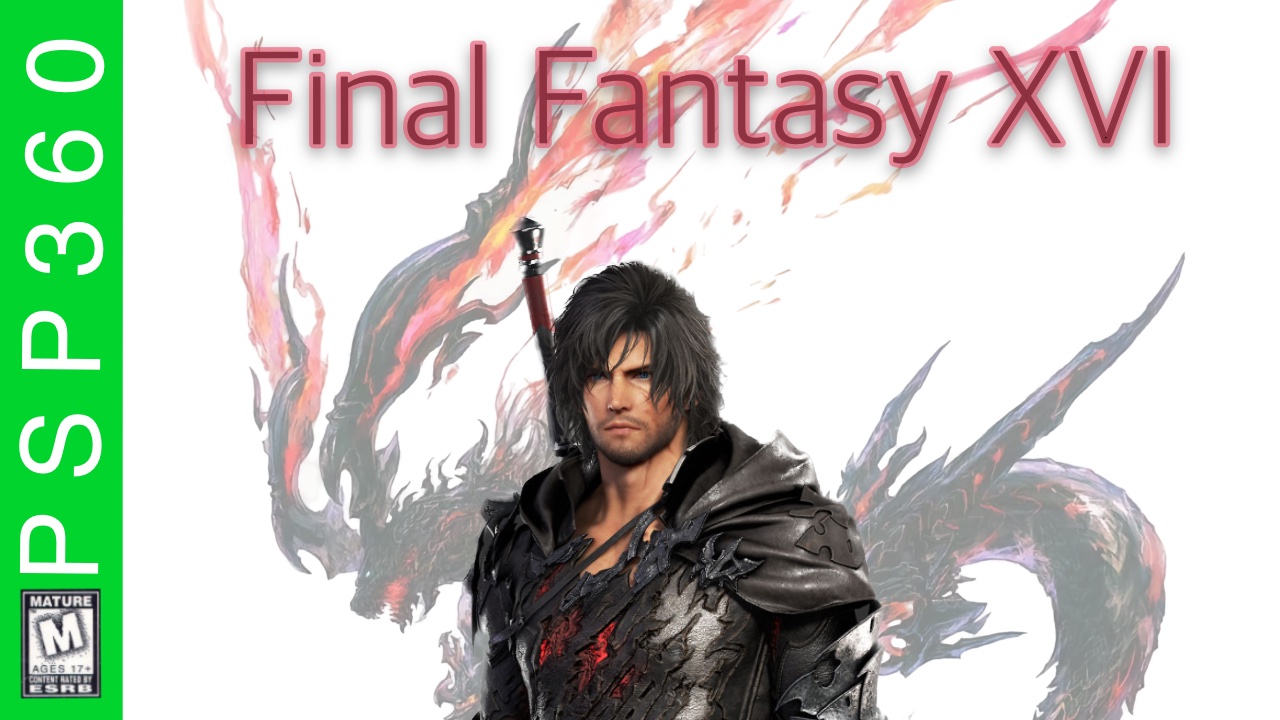
It is undeniable that Final fantasy is one of the most iconic series in video games and after more than a decade of fumbling and missing the mark Square has turned to their past for inspiration.
First there was the FF7 remake – a 2020 re-mastering, re-working, re-telling of the entire franchise’s most loved title. Then in the summer of 2023 came Final Fantasy 16 – which drew inspiration from the medieval setting of the original titles and mixed it with Game Of Thrones story devices to tell the story of Clive Rosfield.
But was square able to make a brand new FF work? Did the characters the story the journey live up to the standards of the series? We will examine the characters the story and the game to see how FF16 really was These are the questions this video will try to answer – massive spoilers ahead.
Starting at the very beginning, the opening was nothing short of epic – the battle between Phoenix and Ifrit was just phenomenal and controlling phoenix was an incredibly satisfying start and a great misdirection to boot. The symphony that played was incredible, the real time graphics really showed what the new generation was capable of pulling off, all of these come together in such an exhilarating and exceptional fashion – to show the summons in a new light. Most of the newer games avoided summons as much as possible but here they were taking centre stage.
Outside of the Eikon battles, the characters and story are very heavily influenced by Game of Thrones which has it’s positive and negatives. FF has done politics before, like in FF12, but its far better here – FF12 had two empires and a small kingdom – FF16 has five kingdoms all at war with one another for the player to keep track off. It’s definitely a bit of a challenge to keep track of the different players at first but it all becomes clearer as the story progresses. But it wasn’t just the different kingdoms with their vying interests – FF16 also borrowed the deeply flawed, obsessive characters from George RR Martin.
Whether it was Clive being rejected by his mom for not being up to royal standards, the madness of Bendiketta, or the obsessiveness of Kupka – none of these characters make any sense unless you are familiar with Game of Thrones and have that as a reference point – every time I found myself confused by a character, I just remembered that the game was referencing Game of thrones and I was pulled back into the game. For example, the fight with Garuda, Bendiktta goes into this rage and I found myself confused by her behaviour – then I remembered the mad characters that made up Game Of Thrones and I found myself getting back into the game quiet easily.

This whole game revolves around Clive and the character is well developed enough to carry the entire game on his shoulders — rejected by his own mom for not being the Phoenix he’s feels for the bearers and sympathizes with their struggles. Despite being at the top of the social hierarchy he is an outsider from the very start and it makes his team up with Cid all the more likely – as this aspect of his character is established from the beginning.
He starts the game as a grunt in the army that conquered his nation and is looking to avenge his brother’s killer. Even after meeting Cid and being informed of his world view he doesn’t immediately join him – he can’t as he has to hold his brother’s killer accountable – he kills Bendiktta by becoming Ifrit – realizing he was the problem all along, the killer he was chasing was himself.
After Cid and Jill convince him to continue seeking the truth. Clive, follows their advice and goes back to where it all started back to Phoenix Gate where he does his own shadow work and confronts the truth of Ifrit. Here he takes responsibility for everything that happens to him and for the brutal beating – at the time he thought killing – he gave to his younger brother – the brother who was more highly valued and regarded by his mother – Clive no longer denies that he had a hand in destroying the place that he called home – and confesses that he kept the truth hidden from himself all along because facing that truth meant he couldn’t be a soldier anymore driven by revenge – he would have had to lead a completely different life and would’ve needed a different reason to live.
Of-course the truth is that Clive is Mythos a vessel for destruction but after learning who he truly is he is able challenge the role he was meant to play – the fate that was handed down to him. This is my favourite part of the game, by taking responsibility and by confronting his repressed demon, the unwanted truth, he becomes capable of taking on a larger mission in the world and confront the foes that tried to shape him and his future.
Clive doesn’t have just an interesting backstory, his relationships are just as important to his character-Cid, Joshua and Jill all play an important role in helping him face the challenges that await him.
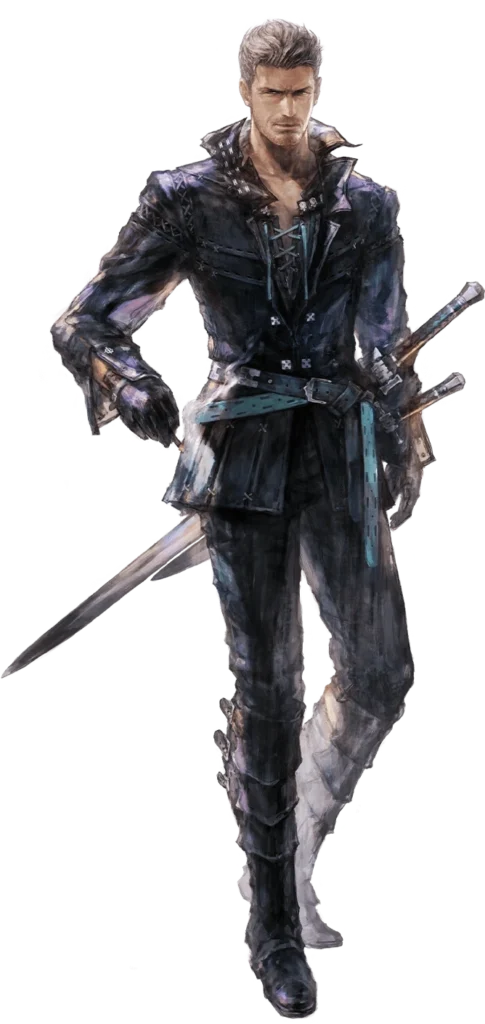
We’ll start with Cid – Cid saves Clive at the very beginning and then he gives him the mission that will define him and the rest of the adventure. Whereas Clive is stoic and composed – Cid is cool, witty and very sure of his path, he’s also very sympathetic to those around him and uses his power to fight for the persecuted bearers and challenge the world’s predominant culture.
While I find Cid’s hair-style an irritating anachronism and the fact he doesn’t look older a major annoyance his, writing is absolutely superb. – the dialogue and banter between him and Clive really elevates parts of the journey. His addition is one of the most memorable aspects of the story. The fact that he dies nearly mid-way through the game was a powerful decision that cements Clive the as the hope for the rest of world.
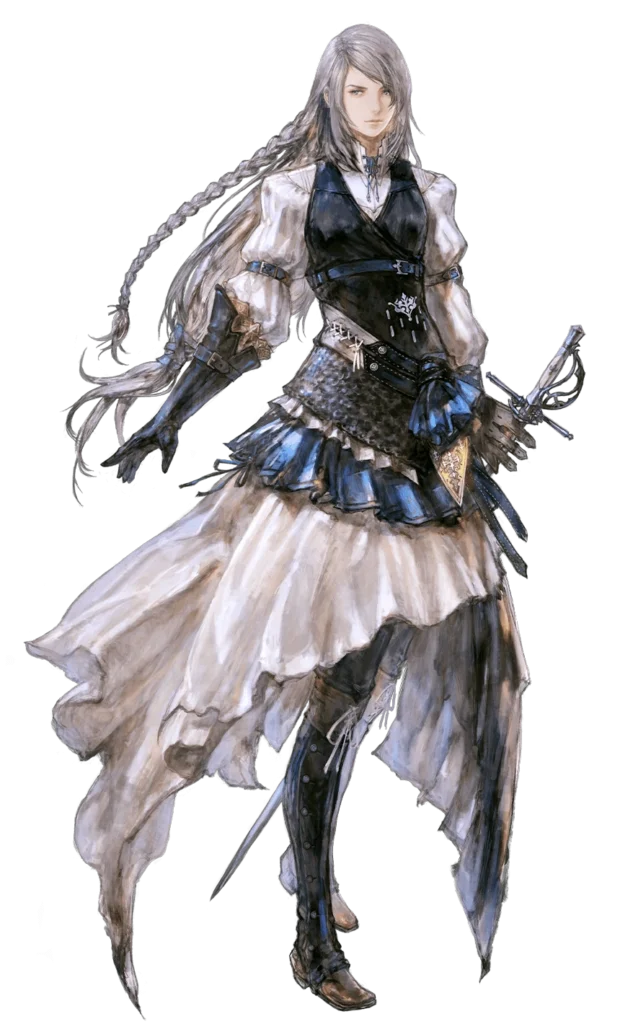
Jill appears really underdeveloped but in my opinion she is well-thought out – I believe the creators intentionally didn’t want to go too deep into her story and kept things as vague as possible. Maybe I’m wrong here, but with the exception of a few lines that merely hint at the horrors endured after the fall of Rosaria, her main story is wrapped up early on at Stronghold island. It would have been great had they explored the love interest story between her and Clive a bit more – it would have added that extra layer of maturity that the story was really going for.
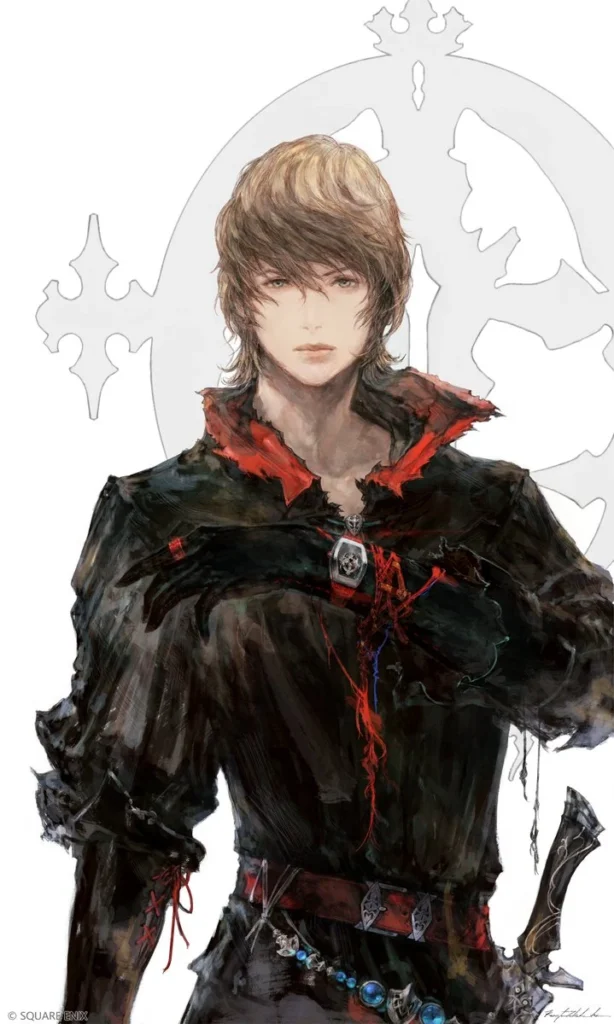
Then there is Joshua a mysterious and unique character that felt under utilized by the story. You start the game controlling phoenix and spend the entire first quarter chasing him down but he doesn’t appear in the party again until halfway through the story – which brings me to one of the biggest gripes I have with the game. This game would have benefitted from shifting perspectives and this is the biggest missed opportunity of FF16.
It would’ve been great to play as Joshua hunting down leads about Ultima and helping out Clive from the shadows. Or even playing as some of the secondary characters, such as Bahumat, taking on legions as he struggles carrying out the King’s orders. Imagine if we could see things from the perspective of Kupka or Barnabas to be introduced to their world and their role in the world – those characters are interesting enough and its too bad that they had to be just foils for Clive to overcome.
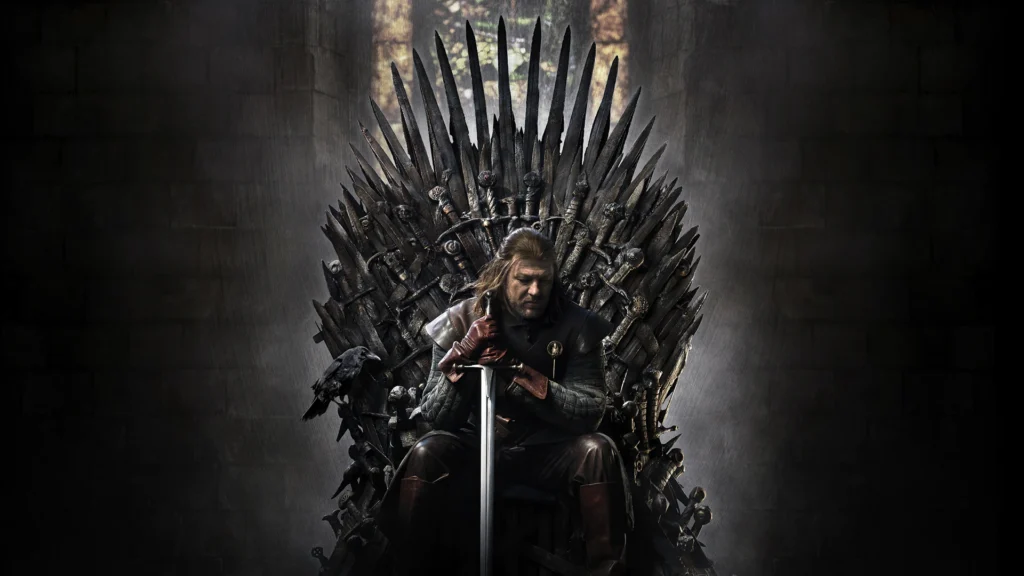
This is the biggest thing that the creators missed from Game of Thrones – GRRM was able to make so many different characters, both good and evil, relatable because he showed the world from their perspective making them sympathetic and reasonable in their own way. As good as Clive was both in terms of his gameplay and his character, the game would have had more layers if it had played with perspectives.
Still GoT allowed FF to explore heavy and grounded themes like discrimination, slavery, rebellion – the core of the FF16 story rebellion of the branded against the world that treats them as less than humans, and a rebellion against god himself (more on that later). FF has always dealt with complex and relevant issues especially in FF7 with the environment taking centre stage but here in this game it is amplified, which is a positive because it kept the game more mature which kept me engaged.
Another major issue I have with the game is that despite the medieval setting the game isn’t sufficiently medieval. After reuniting, both Joshua and Clive don’t reclaim the throne – nor does their uncle – they don’t even set up a new form of government or new code – in fact they never try to liberate it fully from Sanbreque and make it independent- which is the least you could do. It can be argued that Clive was never meant to inherit the throne but for both Joshua and their uncle to ignore Rosaria entirely feels completely off. An important aspect of their character was never truly explored further which was disappointing.

A great deal of focus is on Ultima’s and the Clive’s opposing doctrines of free-will, fate and consciousness – as interesting as those themes are it is unfortunate that the supporting cast didn’t get their time to shine.
There is also what I like to call the Ultima problem – you have characters not taking sufficient responsibility for their actions – if everything can be pinned on Ultima. By having Ultima trick Dion into killing his father and nuke the city he was occupying – it makes him look like a good guy still despite the inordinate amount of death and destruction he has caused – this takes away from the characters and from the original setup of a story about flawed humans.
Kupka, Benadiktta and even Anabella were all responsible for their actions and they had very human motivations with Anabella being the most intriguing – Whereas with Dion, a god was playing with his mind and manipulating every bit, it deviates from how many of the other characters are written. Dion is absolved of all wrongdoing, when in actuality he should be one of the main villains of the story. Ultimately there was just too much Ultima in the story.
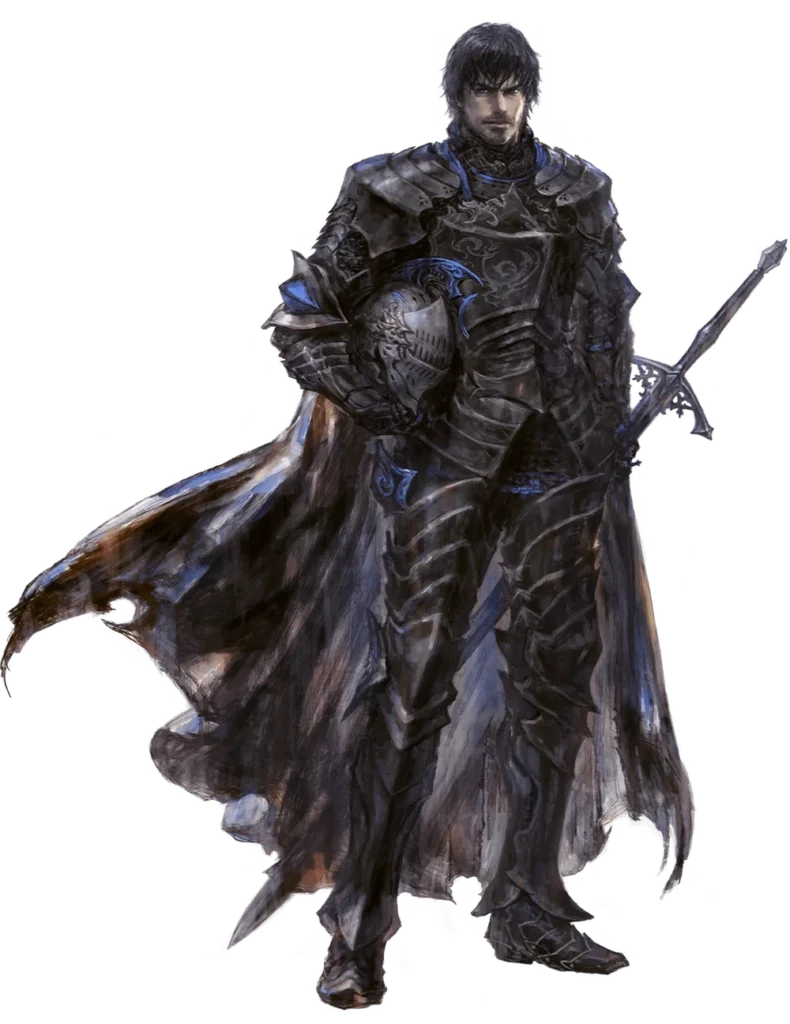
Barnabas is different and far more fascinating than Dion – he is committed to Utlima’s vision of saving humanity from the blight and is actively creating Mythos to bring that world to life. The world is falling apart to the blight and people are at each other’s throats constantly and it makes sense that he sees that the living god as a saviour and that he would work with him to help to bring that about the salvation of the world.
Of course, Square being as atheistic as ever has a god who wants to turn everyone into a zombie – a device used to make Clive the hero. Clive doesn’t see serving a god as the answer, he believes that through willpower alone people could build a better world without ever needing god. Which is ironic because without his god given powers Clive is a mere grunt in Dion’s army – his will alone couldn’t have saved him.
Barnabas is in many way the perfect villain in the story – he combines both motivations and strength better than any of the other villains in the game and for the visual presence that Odin exudes.
The many battles with Ultima leading up to the game’s finale all deliver an exhilarating edge of your seat tension. The ending feels complete and it is quiet apparent that this where the bulk of the writing and focus went. Ultima despite all his power and his many forms is unable to subdue Clive’s will and his enduring connection to his brother thwarts any attempt by Ultima to corrupt Clive.

More than anything I loved the revelation that the destroying the mother crystals was actually part of Ultima’s plan from the start – it really seemed Cid rushed into this theory without properly thinking it through and testing it out and I felt vindicated when it turned out that he was wrong, instead of helping he was awakening Ultima and bringing on the end of the world. Even though they made Utlima more powerful by their misguided actions, Clive was able to overcome him by the faith everyone had placed him – unlike Ultima the creator, Clive hadn’t turned his back on those who placed their faith in him which strengthens his will to the point he is able to defeat Ultima.
Overall, Final Fantasy 16 delivers memorable battle, fascinating characters, beautiful architecture that aren’t just European and works with some difficult themes though it borrows heavily from HBO’s Game of Thrones and it does so to a good effect for the most part despite being uneven in some of the characterizations it still manages to deliver an incredible journey for the PS5 generation – for the first time in a long time it feels like final fantasy is back.